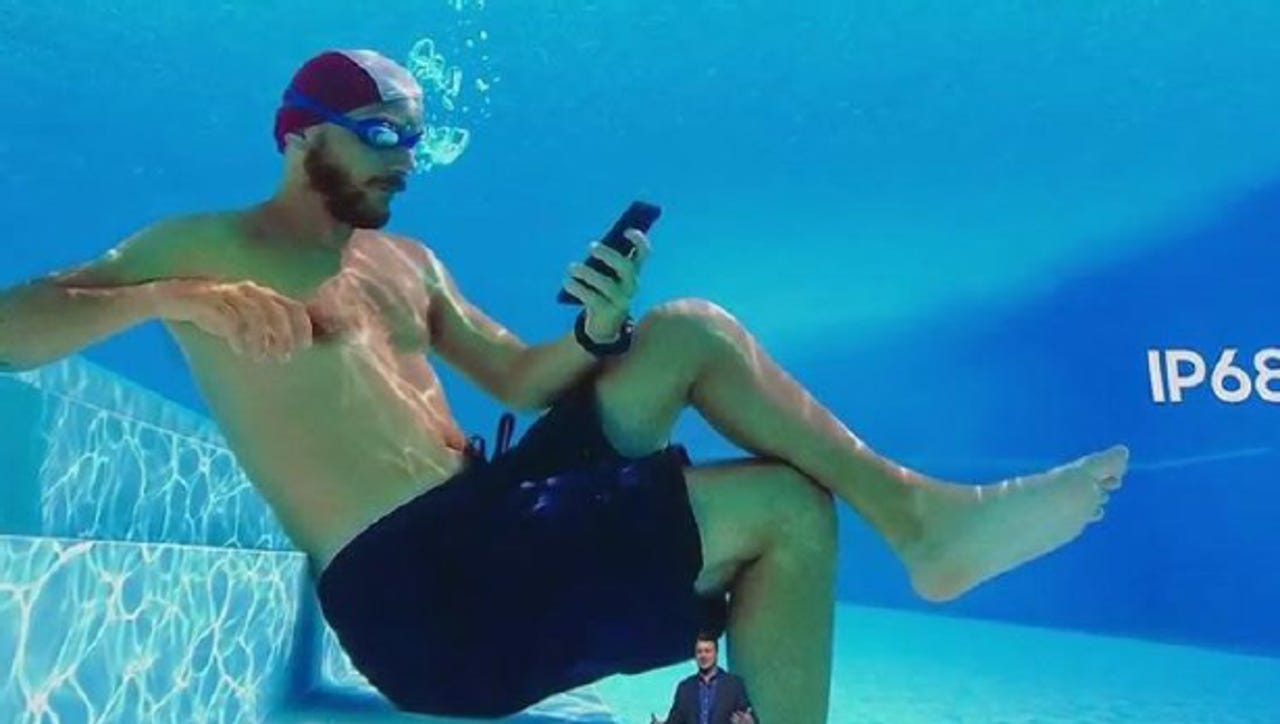Samsung calls ACCC's demands 'cheap' in court case about Galaxy phone ads


Samsung has labelled the Australian Competition and Consumer Commission's (ACCC) demands in regards to a Federal Court case as "cheap".
"The reason why we're having this discussion -- the evidence they seek to produce and have challenged is that [testing] would take six months. Our reaction is that that's cheap in a case of this significance. It's not a debacle, it's just a claim made, and not proved," Samsung's senior counsel John Sheahan said.
The comments were made by Samsung as part of legal proceedings that commenced in July last year. The case is focused on whether 300 of Samsung's advertisements for its Galaxy phones are "false, misleading, and deceptive representations".
On Tuesday morning, the two parties attended court to determine how expert evidence should be created and evaluated for the case. Specifically, the evidence in question is water tests for the Galaxy phones conducted by experts.
The ACCC said it preferred to not have a referee -- which would provide an independent report of an expert's waters tests -- due to the additional costs it would incur. The tests conducted by experts are estimated to cost over AU$150,000 and would take four to six months to complete, ACCC senior counsel Bruce Caine said.
Meanwhile, Sheahan submitted that a referee should be party to the evidence collection process. He explained that a referee was needed as the ACCC's questions for what an expert should look at were too broad as they viewed phone damage through an "inclusive" definition.
"Part of the problem relates to, for an example, damage. So in the ACCC's proposed questions that were attached to the submissions, your honour will see the expression of damages is defined inclusively," Sheahan said.
"Our point for the moment is simply the questions that the ACCC has proposed are not fundamentally directed to the issue the court has to decide.
"If damage means to affect your ability to use your phone, for example, the camera won't work, the microphone doesn't function, the speaker doesn't function, if that were the only inquiry then the question would disappear. But it is evident that the ACCC wants the focus on the concept of damage to be open ended; whatever the referee considers damage is damage and that is what could result in the reference being miscarried."
The consumer watchdog then conceded that it was happy with a fallback option, where a referee is included in the evidence collection process. It put forward, however, that the referee should be provided input from both parties about what they should consider before making an independent evaluation on the expert evidence.
At the end of the hearing, Murphy agreed with the ACCC's fallback position for determining how the referee's protocols are developed prior to any evaluations about expert evidence being made.
"I'd prefer to have the protocol which is as close as possible, unimpeachable, and so, in that regard, I prefer the fallback position that you propose. I don't prefer the consent orders which would leave me in a tough position at the end of the evidence, as to what tests ought to have been conducted to answer the question of falsity," Murphy said.
If an agreement cannot be made on what protocols the referee for the expert should take, Murphy said that the two opposing sides would then have to submit competing orders that would be reviewed by him instead.
The two parties will be required to submit an agreed proposal or their respective competing orders in the next seven days.
As the proceedings move along, the court will continue to look at the ACCC's allegations thatSamsung did not test how water exposure impacted the usable life of devices, that the Korean giant "held the view" that use in non-fresh water could damage them and advised as such on its website, and that Samsung denied warranty claims from people with water damaged phones.
Specifically, Murphy will look at whether the Samsung Galaxy phones under ordinary, reasonable usage are in line with its advertisements.
The devices concerned stretch from the S10 down to the S7, as well as the Note 9,8, and 7, as well as the A8, A7, and A5.
The ACCC is seeking penalties, consumer redress orders, injunctions, declarations, publication orders, an order as to findings of fact, and costs.
Related Coverage
Samsung gears up for Galaxy Note 20 Unpacked event with a teaser video
If you blink, you'll probably miss the biggest clue as to what's coming at the Aug. 5 Unpacked event.
Google sued by ACCC for allegedly linking data for ads without consent
The ACCC has accused Google of increasing the value of its advertising products by expanding its use of personal data without the consumer's knowledge.
Federal Court rules Kogan online promotions were false and misleading
The online retailer had been accused of hiking prices prior to sales by the ACCC.
ACCC and OAIC promise to put consumers at the centre of CDR enforcement
Monitoring compliance and enforcement of the Consumer Data Right regulatory obligations will be jointly conducted by the nation's competition and privacy watchdogs.